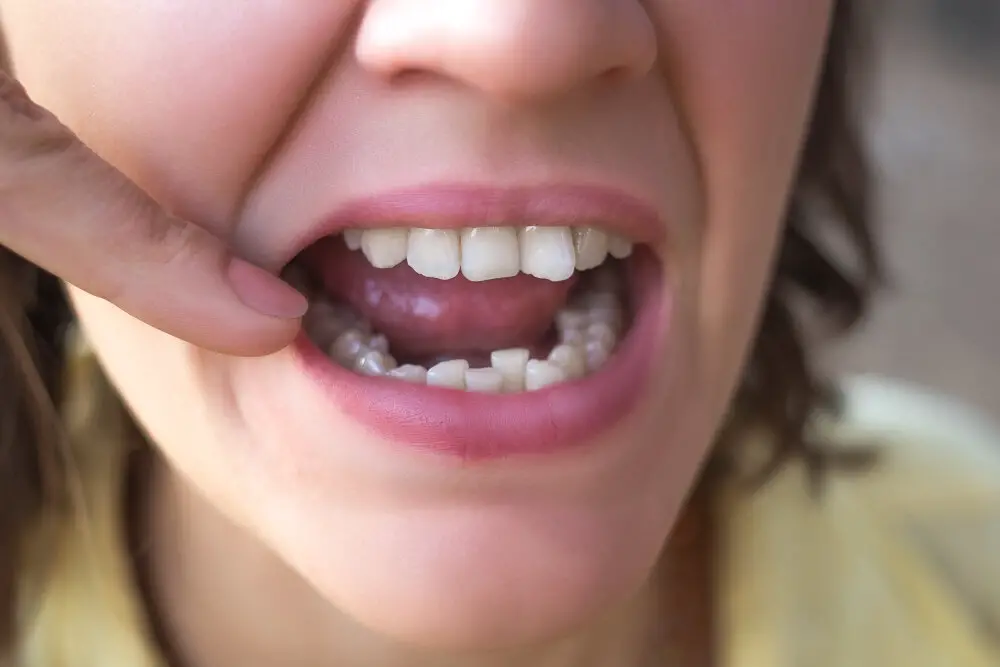Why Do British People Have Bad Teeth? Debunking the Myths and Exploring the Facts

The phrase \bad British teeth\ has been a long-standing stereotype held by people all over the world. It is a common misconception that British people have poor dental health and hygiene, with crooked, yellowed or missing teeth being the norm. However, this stereotype is far from the truth, and it largely stems from a misunderstanding of the cultural differences in dental aesthetics between the UK and other countries. In this article, we aim to debunk the myths surrounding British dental health by exploring the facts. We will delve into the cultural and historical factors that have shaped British attitudes towards dental aesthetics, and how these differ from other countries. We will also examine the current state of dental health in the UK, including the prevalence of dental diseases such as cavities and gum disease, and the measures taken by the government and dental professionals to improve oral health. Join us as we explore the truth behind the \bad British teeth\ stereotype.
The stereotype that British people have bad teeth has been perpetuated for years, but it is not entirely accurate. Many factors contribute to this perception, including the prevalence of dental issues and the historical lack of access to dental care. However, research shows that the dental health of Britons has improved significantly in recent years, with a decrease in the number of people with missing teeth and an increase in the number of people with straighter teeth. Additionally, the perception that British people have bad teeth is often based on cultural differences in dental aesthetics, with some British people preferring a more natural look to their teeth. Overall, while dental health is certainly an issue in the UK, the stereotype of British people having bad teeth is largely a myth that does not reflect the reality of modern dental care.
This article debunks the pervasive myth that British people have bad teeth, exploring the facts behind the stereotype. Though it may be true that British people have historically had less access to dental care than some other countries, this is no longer the case. In fact, the UK has a robust national healthcare system that provides free dental care to all children and many adults. Additionally, the article points out that the perception of British teeth may be more a product of cultural differences in beauty standards, rather than any actual dental health issues. The article offers an interesting and informative exploration of a stereotype that has persisted for decades, shedding light on the reality of dental health in the UK.
Myth 1: British People Don’t Care About Dental Hygiene

The myth that British people don’t care about dental hygiene is a long-standing stereotype that has been perpetuated for many years. While it is true that Britain has a higher prevalence of dental problems compared to other developed countries, it is unfair to say that this is because British people don’t care about their dental health. In fact, the National Health Service (NHS) in the UK provides free dental care for children and young people under the age of 18, and for adults who are receiving certain benefits. This demonstrates that the government and the people of Britain do value dental health and take steps to make it accessible for all. Another reason why this myth is untrue is that there are many dental professionals in the UK who are dedicated to helping people maintain good oral health. Dentists, dental hygienists, and dental therapists all play important roles in preventing and treating dental problems. In addition, there are many dental charities and organizations that work to promote dental health and provide education about oral hygiene. These efforts show that the UK is committed to improving dental health and disproves the myth that British people do not care about their teeth.
Dental hygiene is of utmost importance in the UK, as it not only ensures healthy teeth and gums but also contributes to overall physical health. Poor dental hygiene can lead to a host of dental problems such as cavities, gum disease, and tooth loss, which can be painful and expensive to treat. Moreover, poor oral health has been linked to a range of systemic diseases, including heart disease, diabetes, and respiratory infections. Despite this, there has been a persistent myth that British people have bad teeth, which has been debunked by studies showing that the UK has comparable dental health to other developed countries. It is essential that individuals prioritize their dental hygiene by brushing twice a day, flossing daily, and attending regular dental check-ups to maintain good oral health and prevent serious health problems.
According to the latest survey conducted by the NHS, more than 60% of adults in England visit the dentist regularly, at least once a year. However, the remaining 40% do not attend regular check-ups, which can lead to the development of dental problems such as cavities, gum disease, and tooth loss. Moreover, the research suggests that anxiety and fear of dental procedures, financial constraints, and lack of knowledge regarding oral hygiene are some of the primary reasons behind irregular dental attendance. Therefore, it is crucial to spread awareness and educate people about the importance of dental health and encourage them to visit the dentist regularly for preventive care.
The myth that British people don’t care about their teeth is a persistent one, but it is completely untrue. While it is true that the UK has historically had higher rates of tooth decay and gum disease than some other countries, this is largely due to factors such as diet, availability of dental care and cultural habits. In fact, British people take their dental health very seriously, with regular visits to the dentist and a range of dental products available on the market. Additionally, the UK has a strong tradition of dental education, with many dental schools and training programs producing some of the world’s leading dental professionals. So while it may be easy to dismiss the idea that British people care about their teeth, the reality is that they are just as concerned about their dental health as anyone else.
Myth 2: British People Have Bad Teeth Because of Their Diet

One of the most common myths surrounding the oral health of British people is that they have bad teeth due to their diet. While it’s true that the British diet hasn’t always been the healthiest, there are several factors that contribute to the state of their teeth. Firstly, genetics play a significant role in determining the strength and health of teeth. Some people are simply more prone to dental issues, regardless of their diet. Additionally, lifestyle habits such as smoking and drinking alcohol can have a significant impact on oral health. Regular oral hygiene practices such as brushing, flossing and regular dental check-ups also play a crucial role in maintaining healthy teeth and gums. Another factor to consider is the historical context of dental care in the UK. For many years, dental care was not readily available to the general public, and dental hygiene practices were not as widespread as they are today. This led to a lack of education and awareness surrounding the importance of oral health, which in turn contributed to a higher prevalence of dental issues. However, in recent years there has been a significant improvement in dental care in the UK, with increased access to dental services and a greater emphasis on preventative care. This has resulted in a noticeable improvement in the overall oral health of the British population. Therefore, while diet may play a role in oral health, it is not the sole cause of dental issues in the UK.
Diet plays a crucial role in maintaining dental health. Foods and drinks high in sugar and carbohydrates contribute to the formation of plaque, which can lead to tooth decay and gum disease. On the other hand, a balanced diet rich in vitamins and minerals, such as calcium and vitamin D, can help strengthen teeth and prevent cavities. Additionally, consuming foods that require chewing, such as crunchy fruits and vegetables, can help stimulate saliva production, which is essential for neutralizing harmful acids in the mouth. Therefore, it is important to be mindful of what we eat and drink to maintain good dental health.
When it comes to comparing the British diet to diets in other countries, it’s important to note that there are a wide variety of dietary habits across the globe. However, some general trends can be observed. For example, many traditional diets in other countries emphasize fresh fruits and vegetables, lean protein sources, and minimally processed whole foods. In contrast, British cuisine has been historically focused on meat and potatoes, with a heavy emphasis on processed and packaged foods. While there are certainly exceptions to these trends, it’s clear that the British diet could benefit from a greater emphasis on fresh, whole foods in order to improve overall health and dental hygiene.
Diet is certainly a factor that contributes to dental problems, but it is not the sole cause. While consuming sugary and acidic foods and drinks can increase the risk of tooth decay and erosion, other factors such as poor oral hygiene, genetics, and certain medications can also play a role. Additionally, access to dental care and education on proper oral hygiene practices can greatly impact a person’s dental health. Therefore, it is important to consider a variety of factors when addressing dental problems rather than solely focusing on diet.
Myth 3: British People Have Bad Teeth Due to Fluoride Levels in the Water

One of the most popular myths about British people is that they have bad teeth due to high levels of fluoride in their water. However, this is far from the truth. In fact, the UK has one of the highest levels of water fluoridation in the world, and this has been proven to be effective in reducing tooth decay. Fluoride is a mineral that helps to strengthen tooth enamel, making it more resistant to decay. It is added to water supplies at a safe and regulated level, with the aim of improving dental health. The idea that British people have bad teeth due to fluoride levels in the water likely stems from outdated stereotypes and misconceptions. In reality, the state of dental health in the UK has improved significantly over the past few decades, thanks in part to the widespread use of fluoride. Of course, there are still individuals who may have dental issues, but this is not a reflection of the wider population. It is important to separate fact from fiction when it comes to dental health, and to understand the many factors that can influence the state of our teeth.
Fluoride is a natural mineral that can be found in soil, water, and certain foods. It has been proven to be incredibly beneficial for dental health since it strengthens tooth enamel, making it more resistant to decay caused by acid produced by bacteria in the mouth. Fluoride also helps to repair early stages of tooth decay before it becomes a cavity. This mineral is easily accessible and can be found in many oral care products such as toothpaste, mouthwash, and professional treatments from a dentist. The use of fluoride has been credited with reducing tooth decay rates in the United States and many other countries. It is a safe and effective way to improve dental health and prevent tooth decay, making it an essential part of any oral care routine.
In the United Kingdom, the level of fluoride in the water supply varies depending on the region. Some areas have natural fluoride in their water, while others have artificial fluoride added to it. The optimal level of fluoride in the water supply is 1 mg/L, which has been found to reduce the incidence of tooth decay. However, some regions have levels that exceed this amount, which can lead to dental fluorosis, a condition that results in discolored and pitted teeth. Despite concerns about the potential health risks associated with high levels of fluoride, the UK government continues to endorse water fluoridation as a safe and effective way to improve dental health.
Despite the popular belief that fluoride is to blame for dental problems in the UK, this is a misconception that is not supported by scientific evidence. In fact, fluoride is an important mineral that strengthens tooth enamel and protects against decay. Fluoridation of water and toothpaste has been shown to be effective in reducing the prevalence of dental caries in many countries, including the UK. The real reason for the poor dental health in the UK is more complex and multifactorial, involving a combination of dietary habits, lack of oral hygiene, and inadequate access to dental care. It is important to dispel the myth that fluoride is harmful and to promote its use as a safe and effective tool for improving dental health.
Fact: British People Have Healthier Teeth Than in the Past

In recent years, there has been a significant improvement in the oral health of British people. Contrary to popular belief, the stereotype of bad teeth in the UK is no longer an accurate representation of the population’s dental health. According to research, the number of people aged 16 and over with no natural teeth has decreased from 37% in 1978 to 6% in 2009. This is due to various factors, including better dental care, access to fluoride, and public health campaigns promoting good oral hygiene. The introduction of fluoride into the water supply has played a significant role in the reduction of tooth decay, and the government’s efforts to improve access to dental care have helped ensure that people receive preventative treatment and early intervention. Moreover, the British population’s attitude towards dental hygiene has also changed significantly. In the past, dental care was primarily focused on treating dental problems rather than preventing them. However, with the increased awareness of the importance of good oral hygiene, people are now more proactive in taking care of their teeth. Dental visits are no longer reserved for emergencies, and people are encouraged to visit their dentist regularly for check-ups and preventative care. Overall, the improvement in dental health in the UK is a testament to the effectiveness of public health campaigns and the willingness of the population to take responsibility for their dental health.
The UK has seen significant improvements in dental health over the past century. In the early 20th century, dental diseases were widespread, and many people suffered from tooth decay and gum disease. However, the introduction of fluoride in toothpaste and water supplies has played a significant role in reducing the prevalence of dental diseases. The National Health Service (NHS) has also made dental care more accessible and affordable for everyone. Additionally, there has been an increasing emphasis on preventative care, such as regular dental checkups and good oral hygiene practices. As a result, the overall dental health of the UK population has greatly improved, and the number of people with missing teeth has decreased dramatically. Despite this progress, there is still work to be done to ensure that everyone in the UK has access to high-quality dental care.
According to the latest statistics, dental health in the UK has improved over the last few decades, but there is still room for improvement. In 2019, 22.7 million adults in England saw an NHS dentist, which equates to 50.5% of the adult population. However, 32% of adults reported that they had not visited an NHS dentist in the last two years. In terms of children’s dental health, 23.4% of five-year-olds in England have experienced tooth decay, which is an improvement from previous years. Nevertheless, the rate of tooth decay is higher among children from deprived areas. Overall, while dental health in the UK has made progress, there is still work to be done to ensure that everyone has access to high-quality dental care regardless of their income or background.
The stereotype of bad British teeth is outdated and untrue. In the past, British dental care may have been subpar, but today, it is among the best in the world. In fact, British people now have access to high-quality dental care, and many dentists are trained to provide state-of-the-art procedures, including cosmetic dentistry. Additionally, British food has improved significantly in recent years, with a greater emphasis on fresh produce and healthy eating, which has led to better dental health. Furthermore, the stereotype of bad British teeth is often perpetuated by the media, which tends to focus on extreme cases rather than the majority of people who have healthy teeth. Therefore, it is important to recognize that the stereotype of bad British teeth is outdated and does not reflect the reality of modern dental care in the UK.
The article \Why Do British People Have Bad Teeth? Debunking the Myths and Exploring the Facts\ explores the commonly held belief that British people have bad teeth. The article debunks this myth by explaining that dental health in the UK is actually quite good, with high rates of regular dental check-ups and access to dental care. The article also explains that the stereotype of bad teeth may be perpetuated by differences in cultural norms and perceptions of beauty. In addition, the article addresses the role of diet and lifestyle in dental health, noting that excessive consumption of sugary drinks and foods can lead to tooth decay. Overall, the article provides a nuanced and informative look at the factors that contribute to dental health in the UK.
It’s time to banish the stereotype of bad British teeth once and for all. Despite the persistent myth, there is no evidence to suggest that British teeth are any worse than those in other countries. In fact, a recent study found that British adults have some of the healthiest teeth in the world, with fewer missing or filled teeth than their American counterparts. While it’s true that the British may not place as much emphasis on cosmetic dentistry, this has little to do with the overall health of their teeth. So let’s put this outdated stereotype to rest and celebrate the fact that British people have healthy and beautiful smiles just like anyone else.
Regardless of where you live, prioritizing dental health is crucial for your overall well-being. Your teeth and gums are essential components of your digestive system, and neglecting their care can lead to serious health issues. While cultural stereotypes may suggest that British people have bad teeth, the truth is that dental health is a universal concern. By brushing twice daily with fluoride toothpaste, flossing regularly, and scheduling routine dental checkups, you can maintain a healthy smile and prevent dental issues from developing. Investing in your dental health allows you to enjoy the foods you love, speak with clarity, and boost your confidence. Don’t let myths about British dental hygiene discourage you from prioritizing your own oral health.
Conclusion

In conclusion, the myth that British people have bad teeth is nothing more than a stereotype that has been perpetuated for decades. While there may be some truth to the idea that dental health in the UK was not always a top priority, this has changed in recent years with increased access to dental care and education. The notion that the British have inherently bad teeth is simply not supported by the facts. Factors such as diet, genetics, and socio-economic status can all play a role in dental health, and these factors are not unique to the UK. It is time to put this myth to rest and recognize that dental health is a universal concern that requires attention and care, regardless of where one happens to live.





